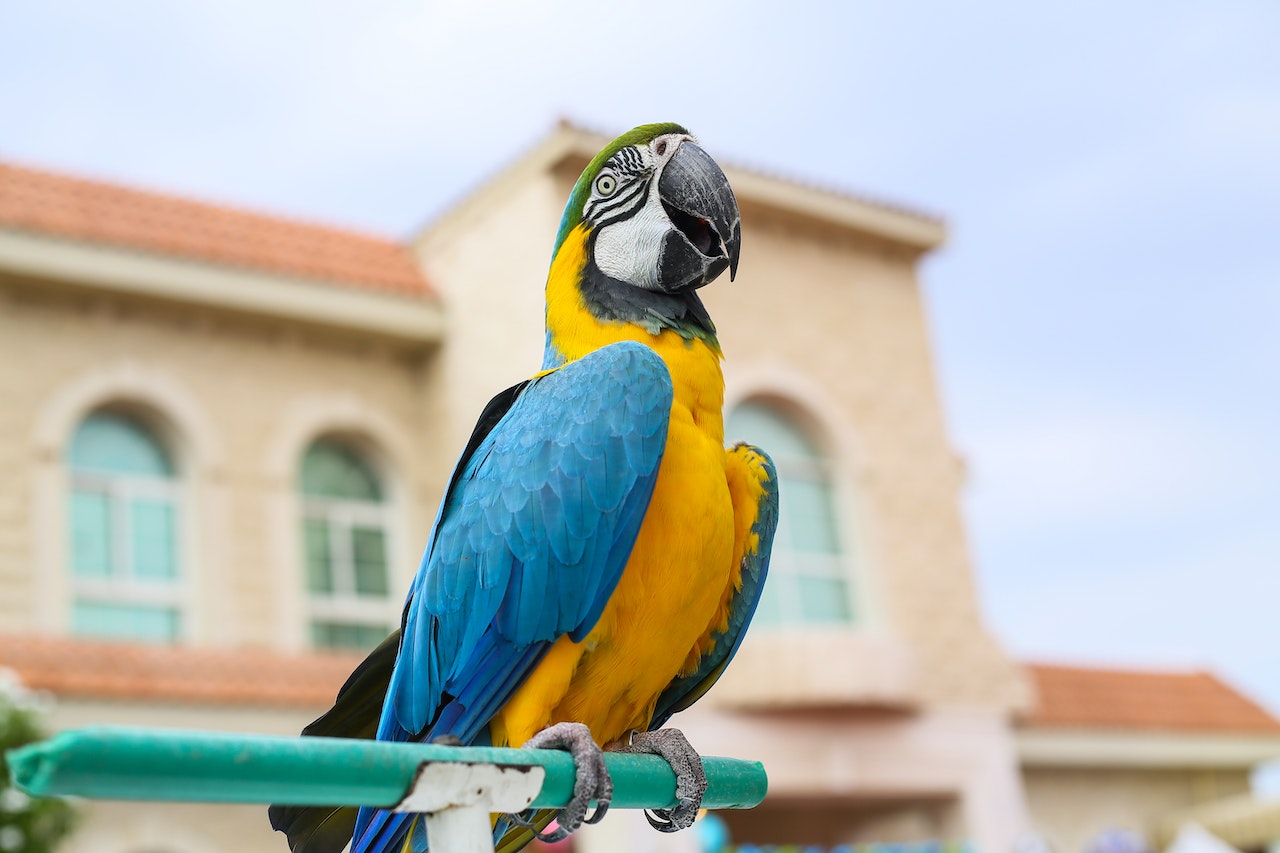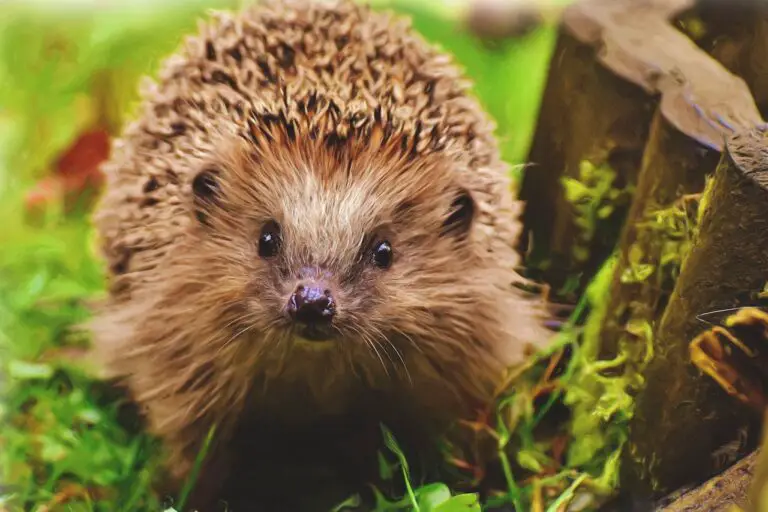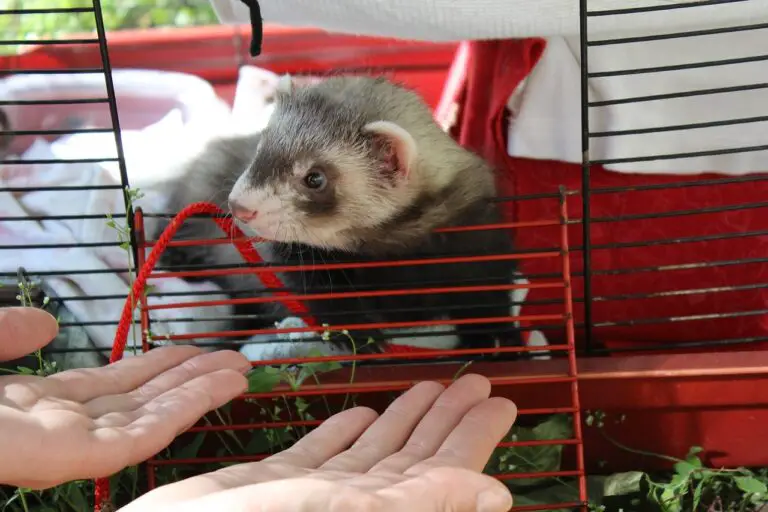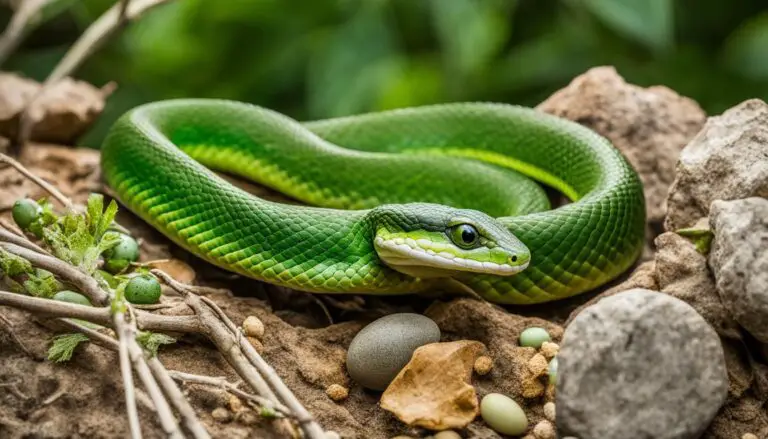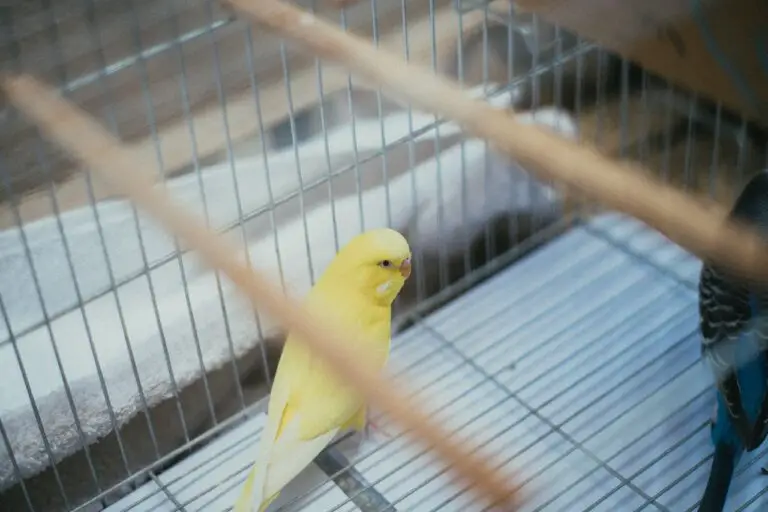Common Health Issues in Exotic Birds: A Comprehensive Guide
Exotic birds are a popular choice for pet owners due to their unique and vibrant appearance. However, owning an exotic bird comes with its own set of challenges, particularly when it comes to maintaining their health and well-being.
Common health issues in exotic birds can range from minor ailments, such as feather plucking, to more severe conditions, such as respiratory infections.
Understanding the unique characteristics and needs of exotic birds is essential to keeping them healthy.
Specific bird diseases, such as psittacosis and avian influenza, can also pose a significant threat to the health of exotic birds. In addition, parasitic infestations, such as mites and lice, can cause discomfort and lead to further health complications.
Proper nutrition is also critical to maintaining the health of exotic birds.
Signs and symptoms of illness can include lethargy, loss of appetite, and changes in behavior.
Prompt diagnosis and adequate treatment of any health issues are essential to ensure the best possible outcome for the bird. Preventive measures, such as regular veterinary check-ups and proper hygiene, can also help reduce the risk of illness.
Key Takeaways
- Understanding the unique needs of exotic birds is essential to maintaining their health.
- Common health conditions in exotic birds include respiratory infections, digestive problems, and feather picking.
- Proper nutrition, prompt diagnosis, and preventive measures can help keep exotic birds healthy.
Understanding Exotic Birds
Exotic birds are unique creatures that require special attention and care.
They are often kept as pets and can provide companionship and entertainment to their owners. However, owning an exotic bird comes with a set of responsibilities, including understanding their common health issues.
Pet birds, including:
- African grey parrots
- Macaws
- Cockatoos
- Cockatiels
- Budgerigars
- Amazon parrots
- Conures
- Canaries
- Finches
Each species has its own set of characteristics and requirements, and it is essential to understand these differences to provide proper care.
One of the most important things to understand about exotic birds is their digestive system.
Birds have a unique digestive system that includes a crop, proventriculus, gizzard, and cloaca. It is crucial to provide them with a balanced diet that includes fruits, vegetables, and a variety of seeds to ensure proper nutrition.
Another truly essential aspect of caring for exotic birds is their behavior.
Adult birds can be territorial and aggressive, and it is crucial to provide them with enough space and stimulation to prevent boredom and frustration.
Psittacines, such as parrots, are known for their ability to mimic sounds and words, and it is essential to provide them with enough mental stimulation to prevent boredom.
Common health issues in exotic birds include respiratory infections, feather plucking, and nutritional deficiencies.
It is essential to recognize the signs of illness and seek veterinary care promptly. Regular medical check-ups and preventative care, such as vaccinations and parasite control, can help prevent health issues from developing.
Common Health Conditions
Exotic birds are prone to several health conditions that can affect their overall well-being.
In this section, we will discuss some of the most common health conditions that exotic birds may experience.
Nutritional Disorders
Nutritional disorders are one of the most common health issues in exotic birds. These disorders can occur due to an imbalanced diet, lack of essential nutrients, or poor-quality food. Some of the nutritional disorders that exotic birds may experience include anorexia, weight loss, weakness, and depression.
Respiratory Disorders
Respiratory disorders are another common health issue in exotic birds. These disorders can be caused by several factors, including bacterial or viral infections, environmental factors, or parasites. Some of the respiratory disorders that exotic birds may experience include dyspnea, sinusitis, and wheezing.
Digestive Disorders
Digestive disorders are also prevalent in exotic birds. These disorders can be caused by several factors, including bacterial or viral infections, parasites, or dietary issues. Some of the digestive disorders that exotic birds may experience include diarrhea, vomiting, and cloacal prolapse.
Reproductive Disorders
Reproductive disorders can also affect exotic birds. These disorders can be caused by several factors, including age, hormonal imbalances, or environmental factors. Some of the reproductive disorders that exotic birds may experience include egg-laying problems and cloacal prolapse.
Neurological Disorders
Neurological disorders are rare in exotic birds, but they can occur. These disorders can be caused by several factors, including viral infections or environmental factors. Some of the neurological disorders that exotic birds may experience include tremors, seizures, and paralysis.
Skin and Feather Disorders
Skin and feather disorders are common in exotic birds. These disorders can be caused by several factors, including bacterial or fungal infections, mites, or poor nutrition. Some of the skin and feather disorders that exotic birds may experience include abnormal feather development, lesions, and feather picking.
Cardiac Disorders
Cardiac disorders are rare in exotic birds, but they can occur. These disorders can be caused by several factors, including age, genetic factors, or environmental factors. Some of the cardiac disorders that exotic birds may experience include atherosclerosis and heart failure.
Musculoskeletal Disorders
Musculoskeletal disorders are also prevalent in exotic birds. These disorders can be caused by several factors, including age, genetic factors, or environmental factors. Some of the musculoskeletal disorders that exotic birds may experience include arthritis, pododermatitis, and pathologic fractures.
Infectious Diseases
Infectious diseases are a significant concern for exotic birds. These diseases can be caused by several factors, including bacterial, viral, or fungal infections. Some of the infectious diseases that exotic birds may experience include Psittacosis, Avian Influenza, and Aspergillosis.
Overall, exotic birds can experience several health conditions that can affect their overall well-being. As a responsible bird owner, it is essential to provide proper nutrition, a clean environment, and regular veterinary care to prevent and manage these health conditions.
Specific Bird Diseases
Exotic birds are susceptible to a range of illnesses, some of which are specific to the species. Here are some of the most common bird diseases that exotic bird owners should be aware of:
Psittacine Beak and Feather Disease
Psittacine Beak and Feather Disease (PBFD) is a viral disease that affects parrots and other birds. This disease is highly contagious and can be transmitted through feather dust, droppings, and other bodily fluids. PBFD attacks the immune system, causing birds to lose their feathers and develop beak abnormalities. There is no cure for PBFD, and infected birds must be isolated from other birds to avoid spreading the disease.
Proventricular Dilatation Disease
Proventricular Dilatation Disease (PDD) is a neurological disorder that affects the digestive system of birds. It is caused by a virus that attacks the nerves that control the digestive system, causing the proventriculus to become dilated. Birds with PDD may experience vomiting, regurgitation, weight loss, and other symptoms. There is no cure for PDD, and treatment focuses on managing the symptoms.
Psittacosis
Psittacosis (a.k.a. parrot fever), is a bacterial disease that can be transmitted from birds to humans. It is caused by the bacterium Chlamydia psittaci and can cause flu-like symptoms in humans, including fever, headache, and muscle aches. In birds, psittacosis can cause respiratory symptoms, including coughing and sneezing. Treatment for psittacosis includes antibiotics and supportive care.
Avian Bornavirus
Avian Bornavirus is a viral disease that affects a range of bird species, including macaws and cockatoos. It can cause neurological symptoms, including tremors, seizures, and paralysis. Avian Bornavirus is highly contagious and can be transmitted through contact with bodily fluids. There is no cure for Avian Bornavirus, and treatment focuses on managing the symptoms.
It is important for exotic bird owners to be aware of any signs and symptoms of these and other bird diseases. Regular veterinary check-ups, a balanced diet, and proper hygiene can help prevent the spread of illnesses and keep birds healthy.
Parasitic Infestations
Exotic birds are susceptible to a variety of parasitic infestations that can adversely affect their health. Here are some of the most common parasitic infestations in exotic birds:
Roundworms
Roundworms are one of the most common parasitic infestations in exotic birds. These parasitic worms can cause serious damage to the bird’s digestive system, leading to weight loss, diarrhea, and even death. Roundworms can be contracted from contaminated food or water, or from other infected birds.
Giardiasis
Giardiasis is caused by the protozoan parasite Giardia. This parasitic infection can cause diarrhea, weight loss, and poor feather condition in exotic birds. Giardiasis can be contracted from contaminated food or water, or from other infected birds.
Mites
Mites are a common parasitic infestation in exotic birds. These tiny parasites can cause itching, feather loss, and skin irritation in birds. Mites can be contracted from other infected birds or from contaminated cages or perches.
Tapeworms
Tapeworms are a common parasitic infestation in exotic birds. These parasites can cause digestive problems, weight loss, and poor feather condition in birds. Tapeworms can be contracted from contaminated food or water, or from other infected birds.
It is important to take preventative measures to avoid parasitic infestations in exotic birds. This includes regular cleaning of cages and perches, providing clean food and water, and avoiding contact with infected birds. If a bird is suspected of having a parasitic infestation, it is important to seek veterinary care immediately.
Importance of Nutrition
Proper nutrition is essential for the health and well-being of exotic birds. A balanced diet provides the necessary nutrients and energy required for growth, maintenance, and repair of tissues. Malnutrition is a common problem in pet birds and can lead to a variety of health issues, including vitamin deficiencies, obesity, and hypocalcemia.
Vitamin A Deficiency
Vitamin A is essential for maintaining healthy skin, feathers, and mucous membranes. Birds that are deficient in vitamin A may develop respiratory infections, eye problems, and skin lesions. A diet that is low in vitamin A or contains insufficient amounts of beta-carotene can lead to vitamin A deficiency. Feeding birds a variety of fresh vegetables and fruits, such as carrots, sweet potatoes, and mangoes, can help prevent vitamin A deficiency.
Calcium Deficiency
Calcium is essential for bone health and muscle function. Birds that are deficient in calcium may develop weak bones, muscle tremors, and seizures. Calcium deficiency is more common in female birds that are laying eggs. Providing birds with a source of calcium, such as cuttlebone or eggshells, can help prevent calcium deficiency.
Obesity
Obesity is a common problem in pet birds and can lead to a variety of health issues, including liver disease, heart disease, and joint problems. Overfeeding and a lack of exercise are the primary causes of obesity in birds. Feeding birds a pelleted diet and limiting high-fat treats can help prevent obesity. Providing birds with toys and opportunities for exercise can also help keep them healthy and active.
Iodine Deficiency
Iodine is essential for thyroid function and the production of hormones. Birds that are deficient in iodine may develop goiter, a condition that causes the thyroid gland to enlarge. Iodine deficiency is more common in birds that are fed a diet that is low in iodine. Providing birds with a source of iodine, such as iodized salt or seaweed, can help prevent iodine deficiency.
In conclusion, proper nutrition is essential for the health and well-being of exotic birds. Providing birds with a balanced diet that contains the necessary nutrients can help prevent a variety of health issues, including vitamin deficiencies, obesity, and hypocalcemia. Feeding birds a variety of fresh vegetables and fruits, providing a source of calcium, limiting high-fat treats, and providing opportunities for exercise can help keep birds healthy and active.
Signs and Symptoms
Exotic birds, like any other animal, can experience a range of health issues. It is essential for bird owners to be aware of the signs and symptoms of common health issues to ensure their pets receive prompt and appropriate care.
Clinical signs, such as changes in behavior or appearance, can indicate a variety of health issues in birds. Stress and depression can cause birds to exhibit signs such as decreased activity, loss of appetite, and feather picking.
Weight loss and anorexia are also common signs of illness in birds. Weakness, dyspnea, tremors, and seizures can indicate underlying neurological or respiratory issues.
Sneezing, nasal discharge, and conjunctivitis can indicate respiratory infections, while polyuria and regurgitation can indicate gastrointestinal issues.
Clicking sounds during breathing and wheezing can also indicate respiratory issues. Pain can be difficult to detect in birds, but signs such as flinching, vocalization, or reluctance to move can indicate discomfort.
Ataxia, or lack of coordination, can indicate neurological issues. White plaques in the mouth or throat can indicate fungal infections, while feather picking can indicate behavioral or skin issues.
Diagnosis and Treatment
Diagnosis and treatment of health issues in exotic birds require specialized knowledge and expertise. It is essential to seek the services of a qualified avian veterinarian who has experience in treating exotic birds.
The veterinarian will conduct a thorough physical examination of the bird to identify any health issues.
In some cases, radiographs may be necessary to diagnose underlying problems.
For instance, radiographs can help identify fractures, tumors, and other internal abnormalities. The avian vet may also perform laboratory tests to identify the specific cause of the bird’s health issues.
For example, a swab of the bird’s cloaca may be taken to test for Chlamydia, which is a common bacterial infection in birds.
Once the underlying health issue has been identified, the avian vet will recommend appropriate treatment. Treatment may involve medication, supportive care, and stress management. In some cases, surgery may be necessary.
Nonsteroidal anti-inflammatory drugs (NSAIDs) may be prescribed to manage pain and inflammation. Supportive care may include providing a comfortable and stress-free environment for the bird to help it recover.
Additionally, the avian vet may recommend dietary changes to support the bird’s recovery.
Stress management is also an essential aspect of treatment.
Stress can exacerbate health issues in birds and prolong recovery time. The avian vet may recommend changes to the bird’s environment, such as reducing noise levels and providing a safe and comfortable space for the bird to rest.
Preventive Measures
Exotic birds require specialized care to maintain their health and prevent common health issues.
Here are some preventive measures that can help to keep exotic birds healthy:
Proper Cage Setup
The cage setup is crucial for the bird’s health and well-being. The cage should be spacious enough for the bird to move around freely and have enough room for toys and perches.
The cage should also be placed in an area that is free from drafts, direct sunlight, and other environmental hazards. The bird’s diet should also be taken into account when selecting the cage setup.
Exercise and Activity
Exercise and activity are essential for exotic birds to maintain a healthy immune system.
The bird should be allowed to fly around the house or have access to a flight cage. The bird should also have access to toys and other forms of enrichment to keep them mentally stimulated.
Hygiene and Cleaning
Proper hygiene and cleaning are essential for preventing disease and maintaining the bird’s health.
The cage should be cleaned regularly, and the bird’s food and water bowls should be cleaned daily. The bird’s environment should also be kept clean and free from debris and waste.
Outdoor Safety
If the bird is taken outside, it should be supervised at all times to prevent injury or escape. The bird should also be protected from predators, extreme temperatures, and other environmental hazards. The bird’s wings should also be clipped to prevent escape and injury.
In conclusion, exotic birds require specialized care to maintain their health and prevent common health issues.
Proper cage setup, exercise and activity, hygiene and cleaning, and outdoor safety are essential preventive measures that can help to keep exotic birds healthy. By following these measures, exotic bird owners can ensure that their pets live a long and healthy life.
Reproductive Health
Exotic birds are known for their colorful and unique appearance, but they are also prone to certain health issues, especially when it comes to their reproductive health.
Here are some common reproductive health issues that exotic bird owners should be aware of:
Egg Binding
Egg binding is a condition where a female bird is unable to pass an egg. This can happen due to a variety of reasons, such as poor nutrition, lack of exercise, or genetics. Symptoms of egg binding include a distended abdomen, straining, and lethargy.
If left untreated, egg binding can be fatal for the bird. Treatment options include providing calcium supplements, warm baths, and lubrication. In severe cases, surgery may be necessary to remove the egg.
Reproductive Tract Problems
Reproductive tract problems can affect both male and female birds. In females, this can include issues such as cloacal prolapse, where the cloaca protrudes from the body, or tumors in the reproductive tract.
In males, reproductive tract problems can include testicular tumors or infections.
Symptoms of reproductive tract problems can vary depending on the specific issue, but can include lethargy, decreased appetite, and abnormal behavior. Treatment options will depend on the specific issue and may include medication, surgery, or supportive care.
Conclusion
In conclusion, exotic birds are prone to various health issues that require proper care and attention. This article has discussed some of the common health issues that exotic bird owners should be aware of, including respiratory diseases, salmonellosis, and antibiotic resistance.
It is essential for bird owners to maintain good hygiene and sanitation in order to prevent the spread of diseases. Regular cleaning of cages, toys, and feeding dishes is crucial to minimize the risk of infections.
Additionally, providing a balanced diet and adequate nutrition can help boost the bird’s immune system and prevent health issues.
Bird owners should also be aware of the potential risks of zoonotic diseases, which can be transmitted from birds to humans. Proper handling and handwashing techniques should be practiced to prevent the spread of these diseases.
Overall, exotic birds require specialized care and attention to maintain their health and well-being. By staying informed and taking proactive measures, bird owners can ensure that their feathered companions remain healthy and happy for years to come.
FAQs
What are the signs of poor health in pet birds?
Birds are masters at hiding their illnesses, but there are some signs that may indicate a health problem. These include changes in behavior, such as lethargy or aggression, decreased appetite, changes in droppings, such as diarrhea or abnormal color, and changes in breathing or vocalization. If you notice any of these signs, it is paramount to take your bird to a veterinarian as soon as possible.
What diseases can be transmitted from pet birds to humans?
Pet birds can carry a variety of diseases that can be transmitted to humans. This includes psittacosis, salmonellosis, and avian influenza. It is important to practice good hygiene when handling birds, including washing your hands thoroughly after handling them or their cages, and avoiding contact with their droppings.
What are some common health issues in parrots?
Parrots are prone to a variety of health issues, including respiratory infections, feather plucking, and nutritional deficiencies. They may also develop behavioral issues, such as aggression or depression, if they are not provided with adequate socialization and stimulation.
How can you prevent the spread of diseases in pet birds?
The best way to prevent the spread of diseases in pet birds is to practice good hygiene. This includes regularly cleaning and disinfecting their cages and food and water dishes, washing your hands thoroughly after handling them, and avoiding contact with their droppings. It is also important to keep your birds away from wild birds and to make sure you quarantine any new birds before introducing them to your flock.
What are the symptoms of psittacosis?
Psittacosis, also known as parrot fever, is a specific bacterial infection that can be transmitted from birds to humans. Symptoms include fever, chills, headache, muscle aches, and a dry cough. In severe cases, this can even lead to pneumonia. If you suspect that you or your bird may have psittacosis, it is important to seek medical attention immediately.
How can you treat common health issues in exotic birds?
The treatment of common health issues in exotic birds varies depending on the specific condition. It is important to consult with a veterinarian who specializes in avian medicine for an accurate diagnosis and treatment plan. Treatment may include medication, changes in diet or environment, or surgery in some cases.
Peter Stones is the founder of Exotic Pets Place, the leading online resource for exotic pet care information.
With over 10 years of hands-on exotic pet ownership experience, he is deeply passionate about sharing his expertise to help others properly care for their unusual pets.
When he's not writing extensively researched articles or connecting with fellow exotic pet enthusiasts worldwide, you can find Peter at home tending to his own beloved menagerie of exotic animals.

